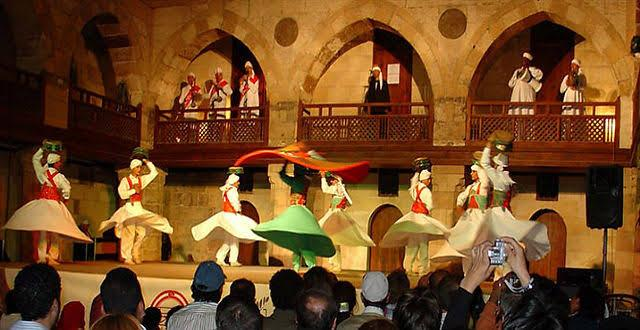Sixty! A number that once seemed
distant and vague, particularly scary for most women, now, rings with clarity
and quiet strength. As I step into this new chapter, I find myself not wilting
inside but blooming—like an inner spring is awakening in the garden of my
being. My skin may carry the imprint of years lived, my shoulders bend a little
with the weight of experience, but inside, there is a freshness I never
expected. This is not the end of vitality, but the redefinition of it. Vitality
is no longer bound by the body, but more importantly, by the soul. Today, I
write not to boast of milestones, but to share something simple and true: life,
even in its most modest form, can blossom at any age—if we choose to nurture
it.
This is not a way to beautify my
world. I know it’s not perfect, never has been and maybe never will be. I fully
accept that and I give up fighting with it. I am at peace with what is; what
was does not exist for me right now.
Turning 60 this month, I find myself
looking inward—and noticing something stirring. Not loud or dramatic, but
gentle and persistent, like green shoots pushing through cold soil. A quiet
renewal. A sense of "blooming" that surprises me—not because
everything is suddenly wonderful, but because I’m learning to appreciate life
for what it truly is: imperfect, fleeting, and full of small joys that I choose
to see and celebrate with gratitude.
In my youth, I looked outward for
meaning—chasing roles, expectations, approval, and validation from the world.
Then came years of caring for others, managing responsibilities, stretching
myself in ways that left little room for pause. Now, at 60, I realize: I am not
who I was then, and I no longer want to be. There is a deeper peace in letting
go of the chase, transcending the rat race, and turning toward myself with
kindness, delving deep to discover jewels I did not even know existed. My body
may be softer, my skin more lined—but my spirit is more rooted in the spark of
light God has breathed into my being. I no longer want to fix everything. I
want to feel everything, appreciate, and thank Allah for all the gifts He has
endowed me.
This inner spring I speak of is not
about reinvention. It’s about recognition; it is about coming home and having
peace. It is about honoring the quiet strength it took to carry me this far.
The quiet resilience in showing up every day for an imperfect life is, in
itself, a real treat. The deepening of self that unfolds when you stop striving
to please the world and finally begin to love the woman you’ve become is
stunning.
I’ve learned that self-care isn’t
indulgence; it’s devotion. A devotion to this one body, this one mind, this one
heart that’s been with me through it all. I no longer see rest as laziness,
solitude as loneliness, or wrinkles as something to erase. These are signs of a
life, lived to the utmost.
As I reflect more deeply, I’ve
realized that I no longer want to simply do. I want to be. Just Be. To be
present. To be authentic. To be still enough to listen for the quiet purpose
behind it all. I ask myself: Why did God place me here—in this particular time,
among these particular people, with this particular heart? That question no
longer frightens me. It guides me. I believe there’s meaning woven into the
ordinary, and that my task now is not to accomplish more, but to become more of
who I was always meant to be.
And just as I was editing these
thoughts—wondering if I was being too hopeful, too poetic—it began to rain. In
Cairo. In May.
A rare gift from the skies, as
though the world itself leaned in to whisper, yes. As though Allah, Most
Merciful and Graceful, had chosen this moment to reassure me that blooming is
still possible. That growth is not bound by season, age, or logic. That even
the driest places can be softened by grace. I stood at the window with tears in
my eyes, overwhelmed not by doubt, but by gratitude—for the sign, for the rain,
for the tenderness of being seen.
As I watched the rain fall gently
over the city, I felt it washing away all that no longer serves me in this new
chapter—old fears, roles I’ve outgrown, expectations I no longer wish to carry.
Just as it cleansed the trees of dust and dirt, it revealed their quiet beauty,
allowing them to glisten in the last light of day. At 6 p.m., under a sky
painted with silver clouds and shy sunrays, the world reminded me: even after
long stillness, everything can shine again.
I walk slower now, but I see more.
The garden that never quite blooms as planned still fills me with awe. The
laughter shared with an old friend means more than any grand achievement. A
warm cup of tea, a quiet afternoon, a good book—these are my luxuries now.
There is freedom in this season of
life. Freedom from trying to prove, to please, to perfect. Freedom to explore
who I am beneath all the roles I’ve played. I find joy in simplicity, and
purpose in simply being. I don’t need more to feel full. I just need to stay
open—to growth, to gratitude, to grace.
So, if you are 60 or beyond, or
sitting with me in this chapter of life, I invite you to look inward. Not to
search for what’s missing, but to notice what’s already blooming. You are not
running out of time. You are arriving—in the most sacred, authentic way—into
your own light.
Let your inner spring bloom. Even if
the world is imperfect. Even if your life is modest. Especially then. Because
that bloom is yours—and it is beautiful.







